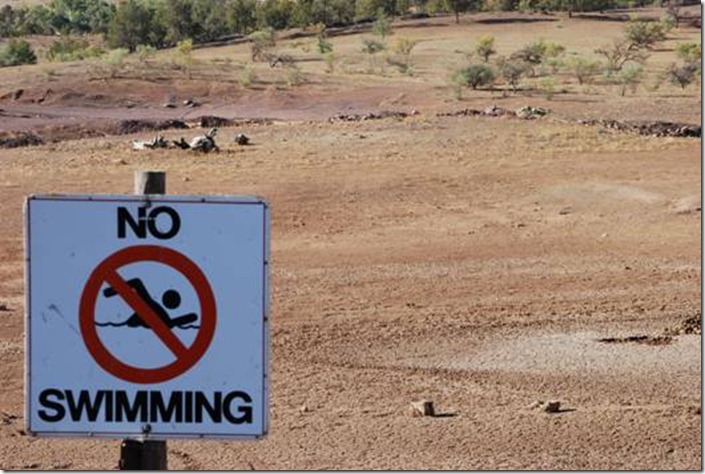 ChristArt
ChristArt
By Spencer D Gear
It’s not unusual to hear people scoff at the idea of God’s absolute values for people and societies. Here is one example from the www:
Any claim of absolute Truth is simply Relative Truth that is “dressed up” in a god’s or some authority’s clothing. It is only based on blind belief, and it is usually known as ABSOLUTE BELIEF. Nobody and I mean nobody can show one proposition that is proven to be absolute truth. If they could, they would put an end to this discussion in a hurry. They just want you to believe in their system of belief – Absolute Belief!…
There are NO absolutes! It is impossible to be sure about anything in the past or future. Anybody who thinks they can, must consider checking themselves into an insane asylum.[1]
Do you notice what had to be done to deny absolutes in the above statement? It stated, ‘There are NO absolutes!’ That is an absolute statement! So, in an attempt to deny absolutes, this author had to affirm an absolute.
That was in line with what Friedrich Nietzsche, wrote, ‘There are no eternal facts, as there are no absolute truths’. He also stated, “I will now disprove the existence of all gods. If there were gods, how could I bear not to be a god? Consequently, there are no gods’.[2] Nietzsche fell into the same trap. To affirm that ‘there are no absolute truths’, he had to use an absolute statement. So to deny all absolutes requires an affirmation of an absolute.
When we speak of moral absolutes, some want to play coy as though they don’t know what it means to say that God’s law is absolute. I encountered this with a person who claimed that
I’m trying to understand what it means to say “God’s law is absolute” if you can’t actually point to what God’s law is and you treat the bits you can point to as guiding principles not an absolute.
In order to affirm “God’s law is absolute” I would need to know what God’s law is, and what is meant by calling a law absolute.[3]
In further interaction, I stated that both of us live in Australia. We know what is an absolute law of government. Those who murder and steal in Australia, will be prosecuted if found, because the law of the land in Australia absolutely forbids murder and stealing.[4]
This person’s response was:
I wouldn’t try and use absolute in that way at all. The word “absolutely” seems completely redundant in “the law of the land in Australia absolutely forbids murder and stealing”. It adds emphasis, but it doesn’t really tell you anything
Nor do I know what you might mean trying to transpose that into “God’s law” that you can’t point to and feel only guided by the intent of.[5]
This is an attempt to avoid the issue or deflect attention away from God’s moral absolutes. The Aussie law is absolute when it comes to murder and stealing. There are no exceptions.
What are absolutes?
However, as I reflected further, I became aware that the language of ‘absolute’ or ‘absolutes’ is that of a number of disciplines in our society, including science, theology, ethics and philosophy. I’ll raise a couple of points here about absolutes in theology and ethics. However a definition of ‘absolutes’ in this context is necessary.
What does it mean to speak of ‘absolutes’?
In science, we speak of ‘absolute standards’, one definition of ‘absolute’ in physics is, ‘a particle or object designated as a standard by assigning to it a mass of one unit; used in defining quantities in Newton’s second law of motion’.[6] Dictionary.com gives the meaning of ‘absolute’ as, ‘free from imperfection; complete; perfect…. not mixed or adulterated; pure’.[7] Another example of the meaning and use of ‘absolute’ is by Isaac Newton. He
founded classical mechanics on the view that space is distinct from body and that time passes uniformly without regard to whether anything happens in the world. For this reason he spoke of absolute space and absolute time, so as to distinguish these entities from the various ways by which we measure them (which he called relative spaces and relative times).[8]
What about logical absolutes? Matt Slick has summarised it simply:
Logical absolutes exist. Logical absolutes are conceptual by nature, are not dependent on space, time, physical properties, or human nature. They are not the product of the physical universe (space, time, matter), because if the physical universe were to disappear, logical absolutes would still be true. Logical absolutes are not the product of human minds, because human minds are different, not absolute. But, since logical absolutes are always true everywhere, and not dependent upon human minds, it must be an absolute transcendent mind that is authoring them. This mind is called God. Furthermore, if there are only two options to account for something, i.e., God and no God, and one of them is negated, then by default the other position is validated. Therefore, part of the argument is that the atheist position cannot account for the existence of logical absolutes from its worldview.[9]
Absolutes and God
When I say that one of God’s attributes is that of absolute moral perfection, I mean that God is morally impeccable. Yes, God is an infinite Being, but he is an infinitely perfect being. i.e. he is absolutely perfect (Geisler 2003:345). We understand this from these kinds of Scriptures: ‘He is the Rock, his works are perfect, and all his ways are just. A faithful God who does no wrong, upright and just is he’ (Deut. 32:4 NIV). ‘As for God, his way is perfect; the word of the Lord is flawless’ (Ps 18:30); ‘Be perfect, therefore, as your heavenly Father is perfect’ (Mt 5:48). Geisler explains:
Sacred Scripture asserts that God is absolutely perfect. There cannot be two beings who are absolutely perfect, for to be two they must differ; otherwise they would be the same. To differ one would have to possess some perfection that the other lacked. But the one who lacked some perfection would not be absolutely perfect; therefore, there can be only one Being who is absolutely perfect—holy, in the metaphysical sense.
Further, if perfection is thought of as moral perfection, then absolute perfection implies holiness as well. God is absolutely perfect, and what is absolutely perfect is set apart from all else. Therefore, God is holy: He is perfect in and of Himself; all else is perfect by participation in His perfection (Geisler 2003:316).
Geisler explains that the English word, ‘perfect’ means flawless, excellent. But there are several Hebrew words for ‘perfect’. These include tanim = complete, sound, blameless, perfect, without blemish; shalem = complete, safe, blameless; tam = complete, blameless, perfect; omen = perfect, faithful; kalil – entire, whole, perfect; and taman = complete, finished, blameless. Greek words for ‘perfect’ include: teleios = complete, perfect, mature; teleiow = bringing to an end, completing, perfecting; teleiotes = completeness, perfection; and katartizw = to perfect, to prepare (Geisler 2003:345-346).
Since one of God’s metaphysical attributes is his moral perfection, that means that: ‘(1) God’s nature is morally perfect; (2) God is infinite, unchangeable, and necessary by nature; (3) Therefore, God is infinitely, unchangeably, and necessarily morally perfect’ (Geisler 2003:347).
This means that God is an absolutely perfect moral Being.
We can search the Scriptures and find that God is an absolute unity in His Being. In theology this is the teaching on God’s simplicity: ‘You shall have no other gods before me’ (Ex 20:3); ‘Hear, O Israel: The Lord our God, the Lord is one‘ (Deut 6:4); ‘The most important [commandment] … is this: “Hear, O Israel, the Lord our God, the Lord is one“‘ (Mk 12:29). See also Isa. 37:16-20; 45:18; Mal. 2:10; Rom. 3:30; 1 Cor. 8:4-6; Eph. 4:6; 1 Tim. 2:5, and James 2:19.
It is evident from these many verses that there is, absolutely, only one God. But if God is absolutely one, then He cannot be divided into many gods. Combined with God’s immateriality, this lends further support to His simplicity. Even though the Hebrew word for “one” (echad) leaves room for a plurality of persons within a unity of substance,[10] in the monotheistic and anti-polytheistic context in which it was used, there is no implication of a plurality of beings or parts within a being. This would be tantamount to polytheism that Jewish monotheism vehemently opposed from the very beginning (cf. Ex. 20:3; Deut. 6:4) [Geisler 2003:39-40]
Ethical absolutes
In the discipline of ethics, here is a brief definition of ‘moral absolutes’:
The phrase moral absolute is ambiguous. As conventionally used it is taken to mean a moral rule which applies, or is true, irrespective of culture or society. More precisely it means a moral rule enjoining or forbidding some type of action or specifying some value to which there are no exceptions, one which is obligatory in all circumstances (e.g., one ought never to steal) [Harrison 1987:3].
To get all of us thinking seriously about moral absolutes, what would you have done in World War 2 to stop Jews from being annihilated in the Holocaust? Would you have hid them in your home secretly, against government law? What about smuggling Bibles into closed countries as Brother Andrew did, as told in his book, God’s Smuggler?
What happens when God’s Word (His law) conflicts with the laws of your country? Which one will you believe and put into practice? How does Acts 5:29 relate to this ethical issue when it states that ‘we must obey God rather than human beings’ (NIV)?
In Christian Ethics: Options and Issues(1989), Norman Geisler supports ‘graded absolutism‘ (1989:113f). He states that there are three essential premises of this view: (1) There are higher and lower moral laws; (2) There are unavoidable moral conflicts, and (3) No guilt is imputed for the unavoidable (1989:116-120). He provides biblical examples to support his view. These include:
- The story of Abraham & Isaac and the real moral conflict of sacrificing Isaac (Gen 22);
- Samson committed a divinely approved suicide (Judg. 16:20);
- Jephthah’s sacrifice of his daughter (Judg. 11);
- Lying and not helping to save a life, e.g. Ex 1 (Hebrew midwives); Rahab (Josh. 2);
- The moral conflict of Jesus’ cross, which has caused many liberal theologians and historical Jesus’ scholars to reject the substitutionary atonement. John Dominic Crossan of the Jesus Seminar is one example. His view is that blood sacrifice should not include suffering and substitution and should not include ‘substitutionary suffering’. He stated that ‘worst of all, imagine that somebody brought together sacrifice, suffering, and substitution…. That theology would be a crime against divinity’. While it is correct to call Jesus’ death a sacrifice, but ‘substitutionary atonement is bad as theoretical Christian theology just as suicidal terrorism is bad as practical Islamic theology. Jesus died because of our sins, or from our sins, but that should never be misread as for our sins’ (Crossan 2007:140, emphasis in original). In spite of Crossan’s objections, the moral conflict is that innocent blood was shed for sins he did not commit (see Isa. 53; 1 Peter 2:24; 2 Cor. 5:21);
- We have numerous examples in Scripture where there is a real conflict between obeying God’s command to submit to civil government and maintaining a commitment to God’s higher law, e.g. Hebrew midwives, Jewish captives who refused to obey Nebuchadnezzar’s command to worship the golden image of himself (Dan 3); Daniel disobeyed Darius’s command to pray only to the king (Dan. 6). The above examples of moral dilemmas in Scripture are from Geisler (1989:116-119).
Geisler has some strong biblical points that we should consider. I don’t especially like the language of ‘graded absolutism’ that he used as it does have some oxymoron connotations. However, Geisler’s alternate label is ‘ethical hierarchicalism’ (1989:116). The latter is a much better summary heading. Acts 5:29 makes it clear that Christians are to obey God instead of human beings. Using the term, ‘ethical hierarchicalism’, as God’s explanation for exceptions to moral laws, as stated in Scripture, is a reasonable summary statement of what God means by hierarchy of ethical requirements when there is a moral conflict.
As an ordained Christian minister, I cannot support the moral absolutes of Scripture and marry homosexuals. When the Australian government passes laws that authorise homosexual marriage (as many MPs are threatening to support),[11] I will disobey the government and refuse to marry homosexuals. See Gen. 2:24-25, Deut. 27:10; 1 Cor. 6:9-11; and 1 John 2:3-6 for my reasons as these Scriptures assert obedience to God and his ethical absolutes. However, there have been whimpers that I’ve heard on the Australian mass media that clergy who object to homosexual marriage in Australia will not be required to perform homosexual marriages. An article stated that:
The motion [in the Australian House of Representatives], introduced by Independent MP Andrew Wilkie this year, states that if the Marriage Act is changed to allow gay marriage, churches would not be obligated to perform such ceremonies. It is expected to be debated in coming weeks.[12]
Obeying God rather than the Aussie government always will be my biblical and ethical commitment.

Courtesy Salt Shakers (Christian ministry)
Works consulted
Crossan, J D 2007. God and empire: Jesus against Rome, then and now. New York, NY: HarperSanFrancisco
Geisler, N L 1989. Christian ethics: Options and issues. Leicester, England: Apollos (Inter-Varsity Press).
Geisler, N 2003. Systematic theology: God, creation, vol 2. Minneapolis, Minnesota: Bethany House.
Harrison, R K (gen ed) 1987. Encyclopedia of biblical and Christian ethics. Nashville: Thomas Nelson Publishers.
Notes:
[1] Fatfist, Hub Author, ‘There are NO absolutes. There is NO absolute truth’, available at: http://fatfist.hubpages.com/hub/There-are-NO-Absolutes-There-is-NO-Absolute-Truth (Accessed 14 May 2012).
[2] Cited by Peter Kreeft 1988. ‘The Pillars of Unbelief – Nietzsche’, The National Catholic Register, January – February, Catholic Education Resource Center. Available at: http://www.catholiceducation.org/articles/civilization/cc0009.html (Accessed 14 May 2012).
[3] Christian Forums, Christian Apologetics, ‘Can you be a Christian and support unchristian actions?’ ebia #132, 13 May 2012, available at: http://www.christianforums.com/t7654555-14/ (Accessed 14 May 2012).
[4] Ibid., #134, OzSpen,
[5] Ibid., #136, ebia.
[6] McGraw-Hill Science & Technology Dictionary, available at Answers (online), http://www.answers.com/topic/absolute-standard (Accessed 14 May 2012).
[7] Available at: http://dictionary.reference.com/browse/absolute (Accessed 14 May 2012).
[8] Stanford Encyclopedia of Philosophy, ‘Newton’s views on space, time, and motion’ (online), August 22, 2011. Available at: http://plato.stanford.edu/entries/newton-stm/ (Accessed 14 May 2012).
[9] Matt Slick 2011. The transcendent argument for the existence of God, CARM. Available at: http://carm.org/transcendental-argument (Accessed 14 May 2012).
[10] At this point, Geisler has the footnote, ‘While the doctrine of the Trinity is not explicitly taught in the Old Testament, as it is in the New (Matt. 3:15-17; 28:18-20; 2 Cor. 13:14), nonetheless, it is implicitly contained in the fact that two or more persons are identified as God and sometimes even speak to each other (e.g., Ps. 45:6; 110:1; Zech. 1:12; cf. Isa. 63:7-10) [Geisler 2003:40, n.1].
[11] There was an Australian House of Representatives Committee inquiry into ‘Marriage Equality’ (read, to include homosexual marriage) in 2011, available at: http://www.aph.gov.au/Parliamentary_Business/Committees/House_of_Representatives_Committees?url=spla/bill%20marriage/index.htm (Accessed 14 May 2012).
[12] ‘Clergy speak out for marriage’, 25 March 2012, available at: http://ilga.org/ilga/en/article/nsD0LOk1tm (Accessed 14 May 2012).
Copyright © 2012 Spencer D. Gear. This document last updated at Date: 16 October 2015.





![clip_image002[5] clip_image002[5]](/wp-content/uploads/2019/05/clip_image0025_thumb.jpg)





